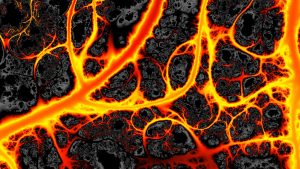There are too few nonprofit organizations like CC fighting for the commons – support our vital leadership with an end of year contribution. Donate today!
CC Community Input: Better Sharing for Generative AI
Better Internet, CC Global Network, Licenses & Tools, Open Creativity, Technology
“Input” by jputman, here slightly cropped, is licensed via CC BY-SA 2.0.
Over the last year, innovation and use of generative artificial intelligence (AI) has proliferated, providing new ways for people to create content from art to zines, and everything in between. At CC, we’ve been watching these experiments in creativity while considering what it all means for what we call better sharing: sharing that is contextual, inclusive, just, equitable, reciprocal, and sustainable. What will generative AI mean for CC’s mission to overcome legal obstacles in sharing knowledge and creativity to address the world’s most pressing challenges?
Supporting community-driven solutions has always been at the heart of CC’s approach to sharing and creativity. In February, we held open meetings with our community to start to explore what CC might do new or differently in a world filling with AI-generated creations. Over 65 people registered to participate in the conversation from all over the world, including artists, educators, lawyers, librarians, policymakers, scholars, scientists, students, technologists, and more.
To get the conversation started, we asked participants to consider some framing questions:
- How can CC and its community help to ensure AI participates in better sharing for all and contributes to a public interest commons?
- How can CC best enable creators to shape how their works contribute to training AI?
- How can CC clarify the copyright status of works generated using AI?
The conversations were wide ranging, touching on some of the specifics of how generative AI actually works, how current copyright laws intersect with AI inputs and outputs, and ideas around where CC and our community might focus, including expanding CC’s educational offerings and policy advocacy on AI topics, mechanisms for rightsholders to opt in and/or out of AI training datasets, and mechanisms to better record and cite the provenance of works generated both by humans and AI. You can read and comment on the raw notes from all three community meetings.
Going forward, CC will house community conversation about generative AI within our Copyright Platform, where you can learn more about how anyone can join and contribute to work at the intersection of generative AI, better sharing, and CC’s mission.
We thank everyone who has contributed to the discussion so far, not only in these meetings, but in the AI webinars we held during Nov 2022, and all the other ways we’ve been in touch. We encourage you to keep helping us think through the complex questions that AI technologies and practices raise for all of us who are working to support a commons in the public interest.
Stay in touch with CC: subscribe to our mailing list, follow us on social media (Facebook, Instagram, LinkedIn, Mastodon & Twitter), or join CC on Slack.
Like the rest of the world, CC has been watching generative AI and trying to understand the many complex issues raised by these amazing new tools. We are especially focused on the intersection of copyright law and generative AI. How can CC’s strategy for better sharing support the development of this technology while also respecting the work of human creators? How can we ensure AI operates in a better internet for everyone? We are exploring these issues in a series of blog posts by the CC team and invited guests that look at concerns related to AI inputs (training data), AI outputs (works created by AI tools), and the ways that people use AI. Read our overview on generative AI or see all our posts on AI.
Note: We use “artificial intelligence” and “AI” as shorthand terms for what we know is a complex field of technologies and practices, currently involving machine learning and large language models (LLMs). Using the abbreviation “AI” is handy, but not ideal, because we recognize that AI is not really “artificial” (in that AI is created and used by humans), nor “intelligent” (at least in the way we think of human intelligence).